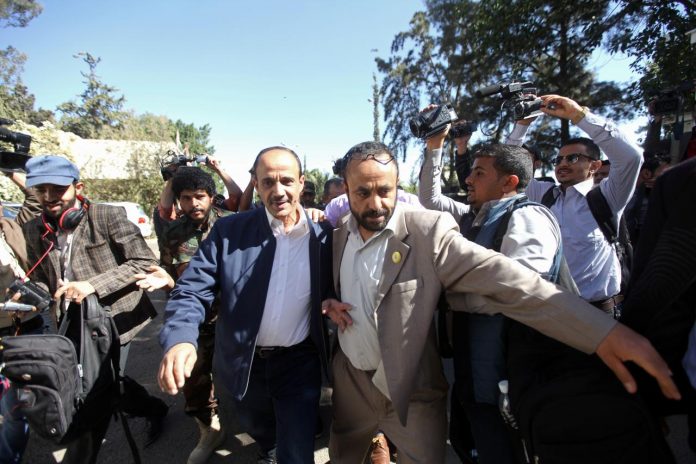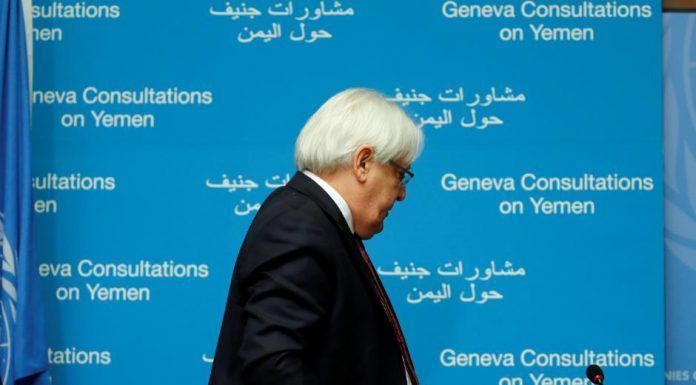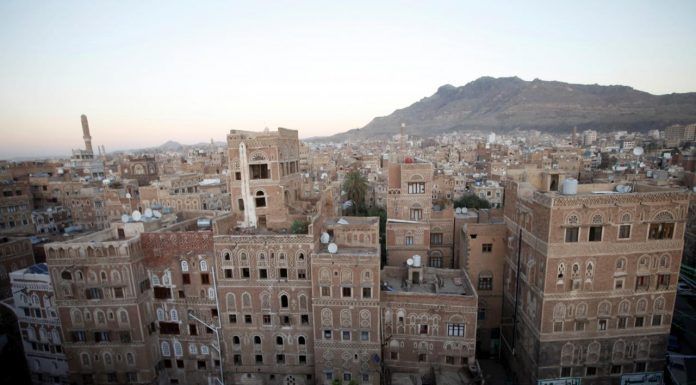
By Aziz El Yaakoubi
STOCKHOLM, Dec 6 (Reuters) – Yemen’s warring parties were set to convene in Sweden on Thursday for the first peace talks in two years, with millions of people on the verge of starvation and support eroding among Western allies for Saudi Arabia’s military campaign.
The war has killed tens of thousands of people and caused what the United Nations calls the world’s direst humanitarian crisis since 2015, when a Saudi-led Arab coalition intervened to restore a government ousted by the Iran-aligned Houthi movement.
The Houthis control the capital Sanaa and most populated areas, while the ousted government is based in the southern city of Aden. The war has led to military stalemate for years, threatening the supply lines that feed the nearly 30 million inhabitants of one of the world’s poorest countries.
U.N. mediator Martin Griffiths wrote in a New York Times column that the talks offered a “glimmer of hope” and said the meeting would announce a formal agreement on a prisoner swap.
“At no other time has there been such a palpable international urge for the warring parties in Yemen to find a solution,” he said. “Yet, it is only those around the table in a serene, remote part of Sweden who can deliver on these hopes.”
Getting the parties to Sweden was an accomplishment in itself. The last attempt at talks in Geneva in September was abandoned when the Houthis failed to attend.
A U.N. source said the two sides were still unlikely to hold direct talks at a renovated castle outside Stockholm. Diplomats would shuttle between them to discuss confidence-building steps and the formation of a transitional governing body.
Peace prospects have risen as Western allies that supply arms and intelligence to the coalition press Saudi Arabia to end the conflict, seen as a proxy war between Riyadh and Tehran.
Outrage over the Oct. 2 murder of journalist Jamal Khashoggi at the kingdom’s Istanbul consulate has refocused attention on the Yemen war and scrutiny over Riyadh’s regional activities.
HODEIDAH “COMPLEX”
Delegates from the Aden-based government and the Houthis have praised Griffiths, who took over as mediator in February, for securing some confidence-building steps ahead of the talks, including evacuating wounded Houthi fighters for treatment.
The envoy wants a deal on reopening Sanaa airport, shoring up the central bank and securing a truce in Hodeidah, the country’s main port, held by the Houthis and a focus of the war after the coalition launched a campaign to capture it this year.
This could lead to a wider ceasefire to halt coalition air strikes that have killed thousands of civilians, and Houthi missile attacks on Saudi cities.
A U.N. source said that the two sides were still far from agreement on the three issues, especially on who should manage Hodeidah port and whether the Houthis should entirely quit the city. “Hodeidah is very complex,” the source said.
The United Nations is trying to avert a full-scale assault on Hodeidah, the entry point for most of Yemen’s commercial goods and aid. Both sides have reinforced positions in the Red Sea city in sporadic battles after a de-escalation last month.
The other main route in and out of Houthi territory is the Sanaa airport, but access is restricted by the Saudi-led coalition which controls the air space.
The head of the Houthis’ Supreme Revolutionary Committee, Mohammed Ali al-Houthi said in a Twitter post that if no deal is reached to re-open the airport, the movement could close it on the ground to all traffic including U.N. flights.
(Writing by Ghaida Ghantous Editing by Michael Perry and Toby Chopra)



